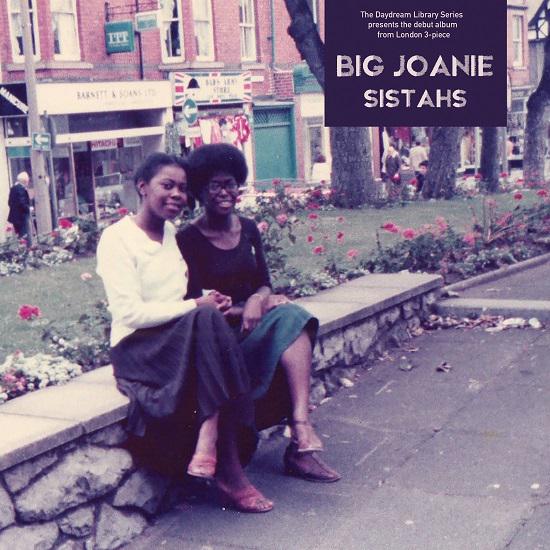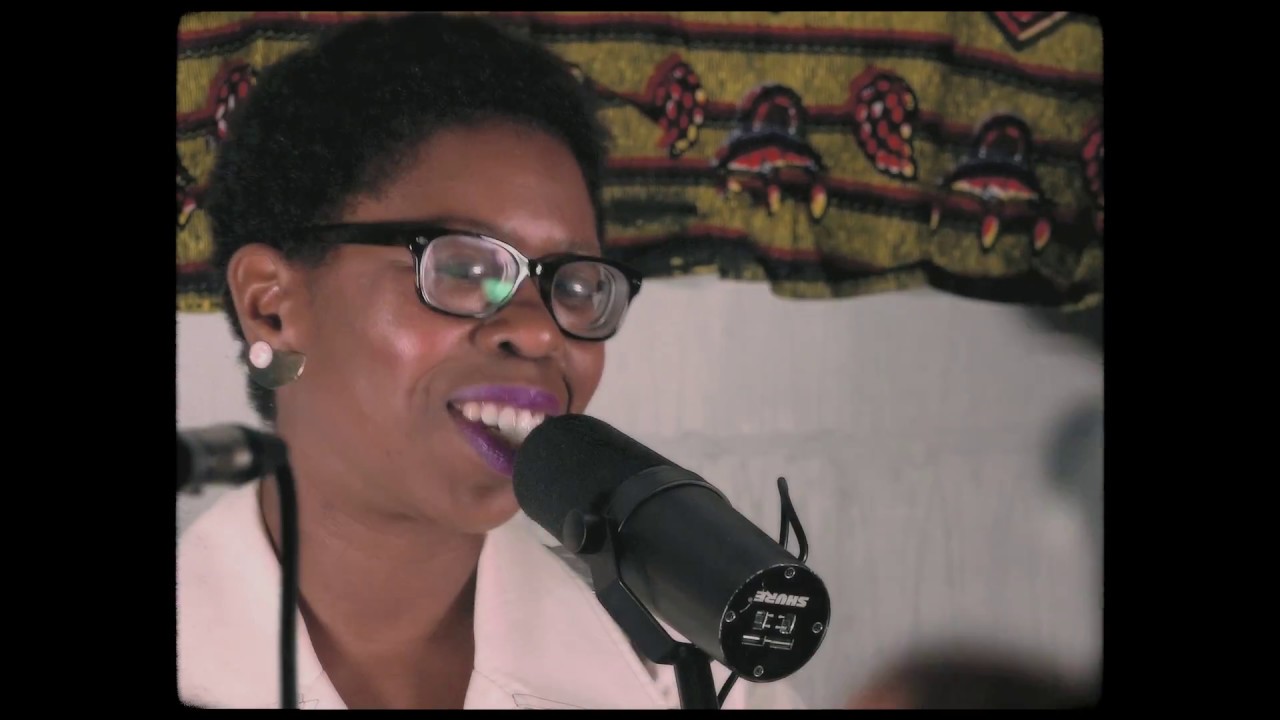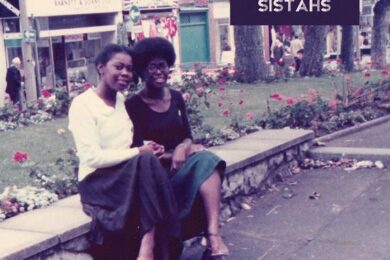The title is an affirmation of solidarity: black feminism channeled through guitar, bass and drums. The cover features a photograph of singer-guitarist Stephanie Phillips’ mother and her aunt, presumably sisters themselves. Like the title, though, the choice of image – two young black women on holiday in Wales – represents something more, a welcome discovery to be made when flicking through the “punk/indie” vinyl in a record shop. Sistahs speaks directly to the ‘sister outsiders’ (thank you, Audre Lorde) who catch each other’s eye across the room, recognising ourselves as the only women of colour at the punk show.
As well as the wider statement its very existence makes, Sistahs is an exploration of individual experience. Lyrically introspective, the songs are often one-sided conversations, processing moments of change and frustration, bratty retaliation and loss. Less a political call to arms and more a “black punks have always been here” reclamation of space, musically Sistahs draws from an eclectic palette that includes 60s girl groups, jangle pop, lo-fi indie and punk.
It opens with ‘New Year’, a track which builds with quiet intensity as Phillips, lucid and assured, sings, “It’s a new year / And I’m still here / It’s a new day / I’ll be okay.” The guitar rises, hopeful but with an undercurrent of vulnerability that says forget the past and face the future. Anchored by Estella Adeyeri’s deep velvet bass and Chardine Taylor-Stone’s stripped-back drums, ‘New Year’ opens the album’s narrative facing growth and change. Though entirely different musically, it recalls a band that Big Joanie have name-checked as influential, The Breeders, and their own song ‘New Year’ which is the first track on Last Splash. Both songs are propelled by an emotional defiance: the Breeders sing “I am the sun / I am the new year / I’m the way home,”; Big Joanie sing “Don’t tell me to wait / Cos I want it now.”
Sistahs experiments with genre, and this is evident in the second track and first single from the album, ‘Fall Asleep’. Bursting forth with synths and handclaps, the repurposing of these 80s/90s tropes turns this into a tough dance punk track that throws off any assumptions that this album is going to be a wholly bedroom listen.
By contrast ‘Used To Be Friends’ has echoes of riot grrrl by way of early-80s indie pop. It’s like a zine written about your ex-best friend, a passive-aggressive reminder of how things used to be until they screwed it up – and now everyone is going to know about it. But then one line – “Difference is only pleasing when you don’t know what you’re missing” – takes the song out of the realms of the bitchy, and implies a scenario where friends outgrow each other for political reasons, with the protagonist moving on to more emotionally satisfying relationships.
‘Token’ is similarly scathing, its darkly off-kilter melody and cynical internal dialogue exploring the all-too-common experience of people of colour in and out of the punk scene, singled out as ‘special’ and ‘different’ by the white people in their communities who assume their own perspectives are the norm. Phillips sings this from the viewpoint of the clueless white person; her mature vocal style and lack of naivety is quietly confrontational, leaving you wondering how this plays out in a live setting when there are mostly white punks in the audience.
The fuzzy dreaminess of ‘Way Out’ and sexy surf-rock of ‘Down Down’ form the middle section of Sistahs, along with ‘Eyes’, a woozy and complex treatise on longing that breaks down into world-weary harmonising. Influences ranging from The Cramps to the Shangri-Las flow through the rest of the album, which ends on the quiet lassitude of ‘Cut Your Hair’, a song about a relationship’s end. Taylor-Stone’s drums gloomily weigh down the sweetly wistful vocals as the album draws gently to a close, a self-reflective bookend to the outward-looking optimism of its opening.
The album’s provenance makes for a good story, too. Big Joanie began life in 2014 at First Timers, an event held at volunteer social centre DIY Space For London where bands form and play their first show. Phillips put a call out specifically for other black feminists to form a punk band for the event, and Big Joanie was born. They started to play shows regularly, and released an EP on cassette and a single. Then earlier this year Thurston Moore and Eva Prinz, who co-runs Moore’s publishing imprint Ecstatic Peace Library, saw Big Joanie open for Dutch band The Ex. Apparently, the two ran to the merch table after the show to meet the band, and discovered Big Joanie had not yet put out an album.
Sistahs, then, is not only Big Joanie’s debut, it is also the first release on Moore and Prinz’s Daydream Library Series. Each album in this series will include liner notes in the form of zines edited by Moore, Prinz and the musicians. It is a satisfying fit for Big Joanie, who have taken so much care over the choices they’ve made within the DIY punk scene, and it’s an appropriate showcase for a band who formed with the purpose to move previously marginalised voices front and centre. Sistahs is a multifaceted example of what this might look like: tender and defiant, it pays respect to its history while resolutely facing the future.




